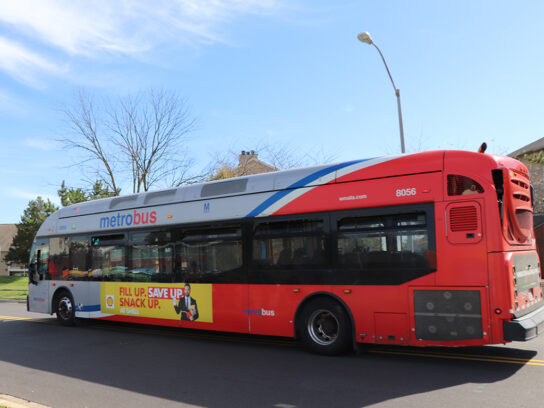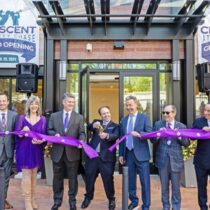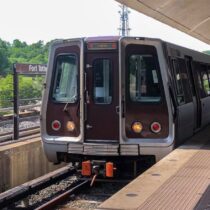
Metro announced their Zero-Emission Bus Transition Plan, which would see their fleet of nearly 1600 buses transitioning to electric power by 2042.
The Zero-Emission Bus Transition Plan aims to provide cleaner and better bus service for the region, according to the Washington Metropolitan Area Transit Authority.
The move requires significant investments to local utilities to upgrade power supplies, install charging equipment and other supporting infrastructure. Additional training and maintenance will also be needed.
Metro General Manager and Chief Executive Officer Randy Clarke said the transition to zero-emission buses will allow the bus fleet to run at a much smaller carbon footprint.
“Every trip taken with Metro instead of a car reduces greenhouse gas emissions and transitioning to zero-emission buses will deliver additional environmental and health benefits while improving the quality of life for people across the region,” Clarke said in a press release.
With the new timeline, half of the metro’s bus fleet will be zero-emission in the next 10 years. Metro plans to open a zero-emission bus garage at Northern Bus Garage in 2027. Additionally, five of Metro’s nine garages will be ready for zero-emission buses by 2031 and the remaining will be ready by 2041.
Initially, Metro will use battery electric buses. According to WMATA, these buses are more developed and cost effective. As time goes on, hydrogen fuel cell technology will be evaluated based on cost, technology and commercial viability.
The transition is estimated to be $2.3 billion above the costs associated with the current fleet. To help fund the transition, Metro will seek additional federal, state and regional funding opportunities.
Bus deployment is expected to start this year at Metro’s Shepherd Parkway Bus Division.

